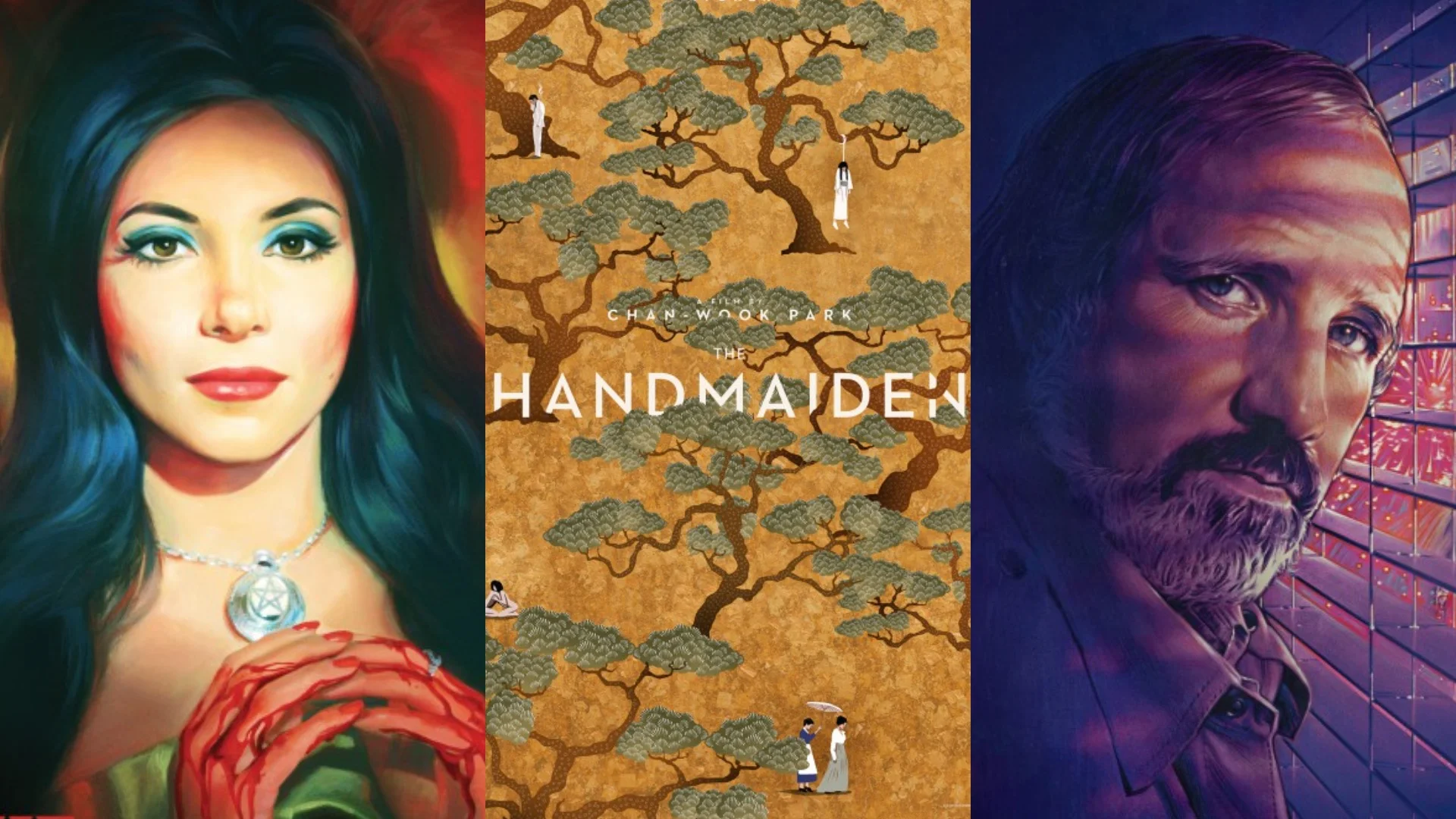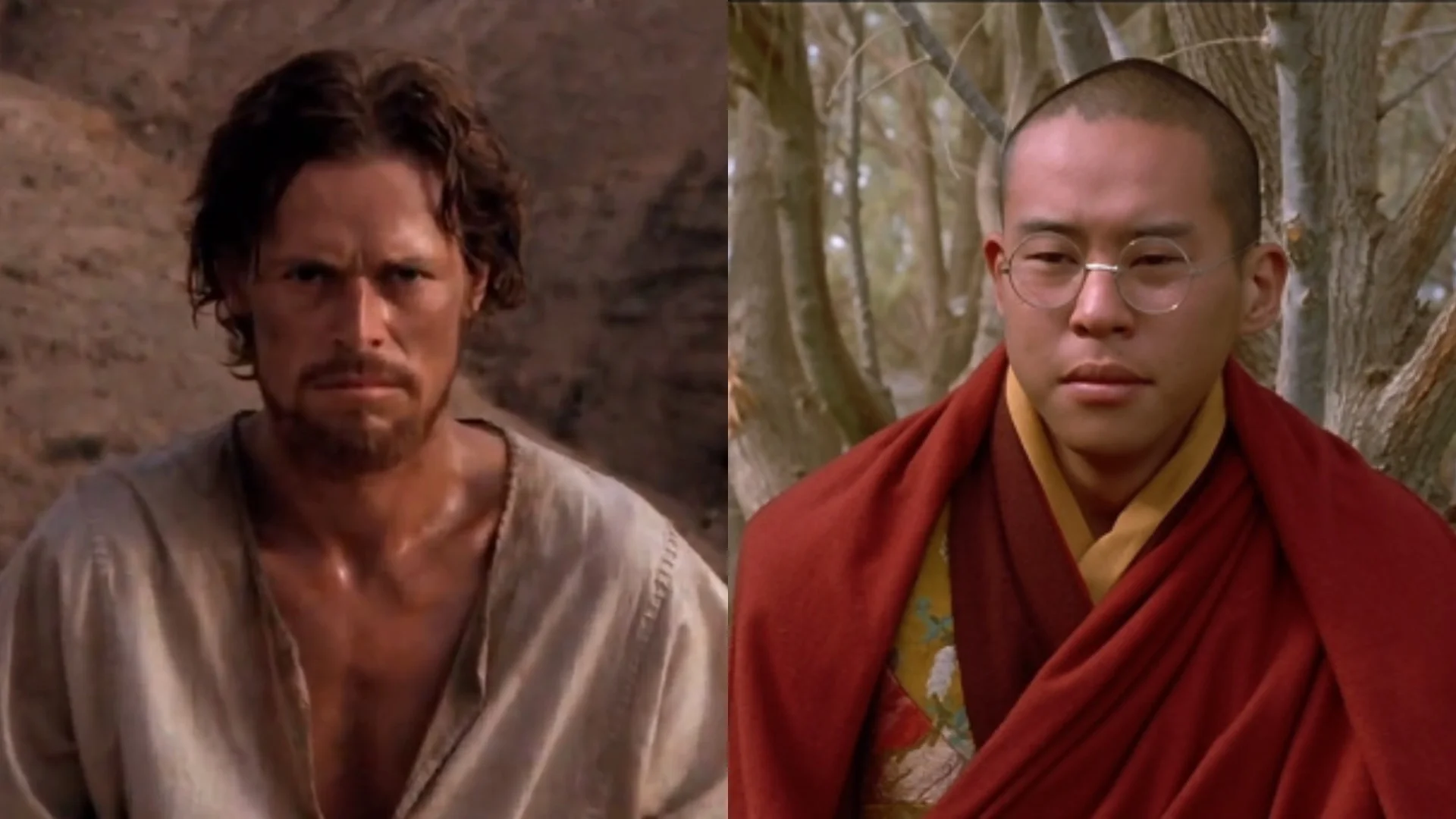Marcelo's Top Ten Movies of 2016
2016 was a rough year.
Politically, sure, we all felt it. The loss of so many important artists didn't help things either. And on a personal level, it was the most difficult year of my life. Movies, luckily, got me through most of it, and getting this site up and running, as the Editor-in-Chief, kept me busy.
It’s fitting that a lot of the movies I connected with in 2016 had the underlying current of tragedy running through them. Overcoming and dealing with those tragedies through these movies has felt cathartic at times, even when sometimes there were no clear answers in how to recover. It's almost like the movie gods knew what we were in store for and dealt out large amounts of grief onscreen for all of us to share. Or, it might be me seeing more than what's there, pulling these themes and lining them up to what I want to see. Who knows, my top ten list might have been completely different had my life taken a more positive spin in 2016. Either way, it was another exceptional year for movies, and it's best not to listen to those who said otherwise because they just weren't looking hard enough.
Now that the introduction is out of the way, let me get into a few honorable mentions before I dive into my top ten.
Horace and Pete
One of the best works of art I watched in the past year wasn’t a movie and it's one that needs to be talked about. Comedian Louie C.K. could have easily made a deal with FX or any streaming service to get his 10-hour, multi-cam teleplay Horace and Pete in front of a bigger audience, but he wanted to make something on his own terms. Featuring stellar performances from C.K., Steve Buscemi, Edie Falco, Alan Alda, Jessica Lange and more, you won’t find a better, already prescient take on should-be-dead patriarchies and the decline of the American dream. (The entire series is now on Hulu.)
Christine
One of two Christine Chubbuck movies from 2016, with the other being the documentary Kate Plays Christine (which I’ll mention later), this narrative film stars Rebecca Hall as the real life reporter who committed suicide during a live television broadcast. Hall’s performance is easily one of the best of the year. She physically and emotionally embodies the disturbed persona of the doomed Chubbuck, while also providing insight on what could drive a person to do the unthinkable.
O.J.: Made in America, Cameraperson, Tower, Weiner
2016 has once again proved to be an incredible year for documentaries. O.J.: Made in America, the engrossing 7-hour odyssey through this country’s obsession with celebrity, cancerous racism and failed legal system, could have been the standalone documentary powerhouse of the year if it wasn’t for smaller films like Tower and Cameraperson. Tower shined a light on the victims of a national tragedy with wonderful grace, while Cameraperson provided the most personal documentary experiment in some time, trying to capture years of memories, making them anything but ever-fleeting. Even Weiner provided a glimpse into the portrait of celebrity and ego, in an almost as revelatory fashion as O.J.: Made in America. In some ways, documentaries more than feature films show you the truth, more than real life can.
Popstar: Never Stop Never Stopping
So close to making my top ten, I couldn’t finish out the year without mentioning The Lonely Island’s new already-primed-to-be cult classic, Popstar: Never Stop Never Stopping. Featuring some of the best original songs in any movie, bar none, it’s a damn shame this movie failed to gain a bigger audience while in theaters. Co-director Jorma Taccone’s previous movie and the equally hilarious MacGruber went through a similar fate, and here’s to a new audience embracing Popstar like they did MacGruber.
Silence
Martin Scorsese’s latest might be the one film from 2016 I might need to revisit more, but will have the hardest time coming to terms with. It’s not an easy watch in the slightest, but there’s no denying the artistry behind it. Silence might be Scorsese's most brutal endeavour, as it essentially tortures Andrew Garfield’s Portuguese Jesuit priest, presenting violent acts to test his faith. As predicted, it doesn’t provide easy answers, but it's in its ambiguity where Scorsese presents the most important moments to its characters and audience.
And now my top ten, which I present in thematic pairs, in no preferential order.
The Handmaiden / Arrival
These two movies couldn’t be more different on the face of it, but I find myself in love with both of these screenplays, which I consider to be the two best screenplays of the year. There were twists and turns in each that had me riveted and awestruck, all the way through to their respective finales. Each featuring powerful female characters and wonderful production design, The Handmaiden and Arrival both toss you into a maze of a world, where by the end all that’s left is hope.
The Edge of Seventeen / Too Late
Two indies that have a deep connection when it comes to father and daughter relationships. The Edge of Seventeen is a new teenage coming-of-age classic, rightfully standing aside Easy A, Mean Girls and anything John Hughes. Hailee Steinfeld delivers the best performance of her career and one that should be in the awards talk with your Stones, Portmans and Hupperts. Her character deals with being an awkward teenager, accepting the loss of her father and finding acceptance with her friends, family and her teacher, and surprising new father figure (Woody Harrelson). While Too Late is far less conventional, it offers a similar take on familial love and loss. Shot and projected theatrically, exclusively on 35mm celluloid, the movie is broken into five reels, each a long uninterrupted take. The experimental ode to film noir is surprisingly touching, as much as The Edge of Seventeen, and has a badass John Hawkes lead performance to top it all off.
Manchester by the Sea / Jackie
How does one person deal with immeasurable tragedy? Jackie and Manchester by the Sea both address this question, yet both offer no clear resolutions. I can relate to the despair presented on screen in each movie on one level, but I’m not going to pretend to know how it feels like to go through the loss Casey Affleck’s character in Manchester and Portman’s Jackie Kennedy face in their respective movies. With Manchester, Affleck internalizes the horrific events of his past, delivering a powerful, non-showy performance. It feels like a real portrait of a man suffering, with the unsuccessful attempts to normalize a life after it has fallen apart. In Jackie, Jackie Kennedy’s suffering is front and center, with her dealing with the assassination of her husband and president, from the motorcade in Dallas to the funeral in Washington D.C.. Portman manages to convey the pain and anger of a woman who not only has the death of her husband hovering over her, but also the unforeseeable future of American history to contend with. What’s most painful is how each movie frames the past, interweaving the happier moments around the tragedies. We can relate to the notion of a Camelot, and how sometimes those moments are ever so haunting once they’re taken away.
One More Time with Feeling / Kate Plays Christine
Two documentaries that speak to the act of performance in the wake of death. One More Time with Feeling doesn’t hide its artifice, with Nick Cave, on camera, constantly questioning director Andrew Dominik and the documentary crew on the technicalities of its 3-D presentation. Cave, dealing with the recent death of his son, wanted no press after the release of the Bad Seed’s new album Skeleton Tree and decided this movie would say all that’s needed to be said about the album and his personal struggle. Whether it’s through the confessionals or through the performances, it’s hard not to hear the heartache in Cave’s voice. He’s not even sure why exactly he should keep pushing forward, going back and forth on the meaning of it all, but the man remains a consummate performer, braving through the pain for art. Playing into similar themes is Kate Plays Christine, the pseudo-documentary that profiles the life and death of reporter Christine Chubbuck. Actress Kate Lyn Sheil interviews people who are tangentially connected to Chubbuck, trying to hone in on who she was. Sheil then attempts to honestly portray scenes from Chubbuck's life, leading up to her final moments when she took a gun to her head and shot herself on live television. Sheil and the movie’s journey is frightening at times, delving into the very real levels of depression Chubbuck and others suffer through. The movie ends on an honest question, asking the director Robert Greene and the audience why they want to see such a violent act played out. Both documentaries value the power of the medium, presenting tragedy with honesty while unwrapping the artifice around it.
The Nice Guys / La La Land
The "Ryan Gosling in Los Angeles" double feature that will surely make you smile. The Nice Guys takes on the seedy underbelly of 1977 Los Angeles. Gosling plays a private detective that works with Russell Crowe’s pay-me-and-I'll-beat-anyone-up enforcer to uncover a murder plot involving pornography, a government conspiracy and Detroit automakers. The movie is undeniably Shane Black’s, as the writer/director brings his unique charm to the proceedings. And why we can’t have three more entries in The Nice Guys series is confounding to me. The movie didn’t light the box office on fire, but that shouldn’t stop audiences from eventually finding The Nice Guys and holding it with as high of esteem as Kiss Kiss Bang Bang and Lethal Weapon. Conversely, there are plenty of eyes on La La Land. Damien Chazelle’s musical presents a brighter side of L.A., a Technicolor dream of a romance with Gosling and Emma Stone singing and dancing to their hearts’ content, trying to balance love and career in a city that shows no compassion for either. The songs are beautiful and the final moments are heartbreaking and personally poignant for me. La La Land is a joy, one that makes my lifts my soul and provides a much needed catharsis after a struggle through the year that was 2016.








